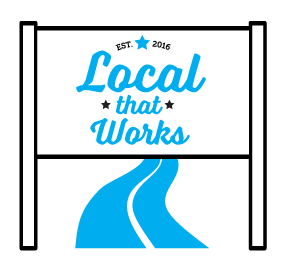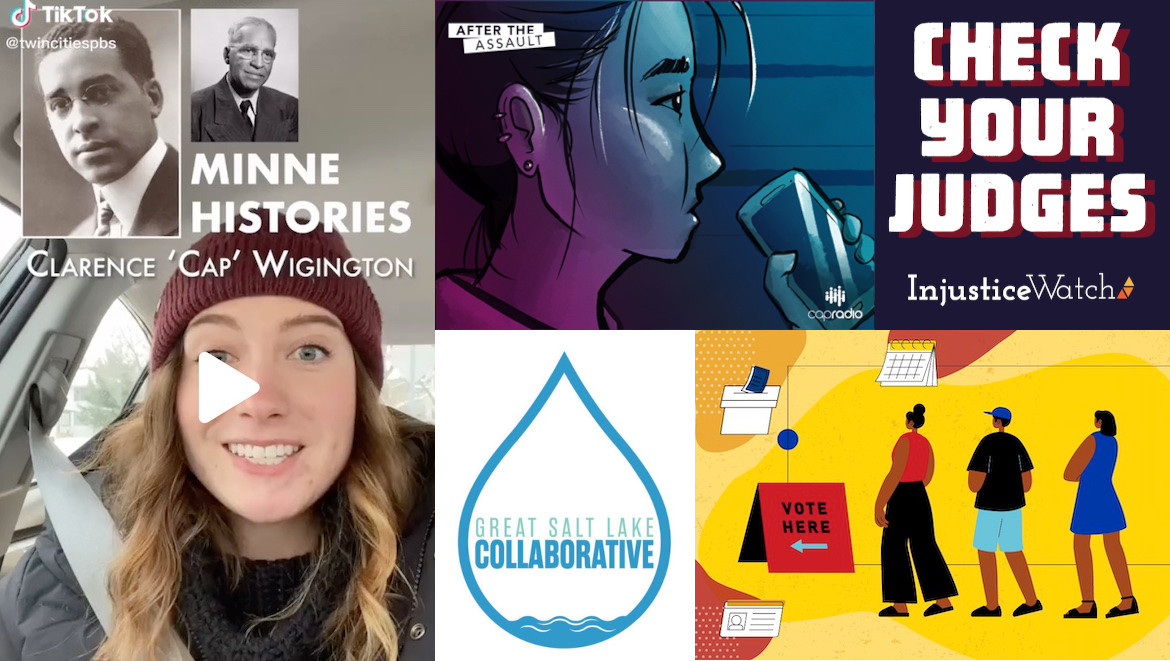20 media projects selected as semifinalists in the 2021 Local that Works contest

Twenty media projects created by public media and local news organizations will compete as semifinalists in Current’s fifth annual Local that Works contest, vying for a finalist slot and a shot at our $20,000 Grand Prize.
Current received 107 entries from media organizations from all over the country, including community radio stations, digital startups, major-market joint licensees and statewide collaborations. The entries included arts and music initiatives, educational services and content, and community-based responses to COVID and/or diversity, equity and inclusion. There were documentaries, newsletters, online event series and podcasts.
The total number of submissions was lower than last year, but the entries were diverse and compelling. Most submissions came from newsrooms or focused on social issues. My takeaway: There’s a tremendous amount of original, impactful, replicable and audience-engaged work happening on the local level in public service media, a big umbrella that includes public broadcasting and other locally owned media organizations.
Here are the 20 projects that move to the next round of judging:
45 Days/State Street from KUER and NPR Utah in Salt Lake City — A politics and government podcast that provides a fun and accessible way to understand how bills become laws at the Utah Legislature and what they mean for the average person.
The Accountability Project, Connecticut Public Broadcasting — A three-person investigative journalism unit that produces multiplatform stories.
Amplifying Community Voices in Local Media, Amplify Utah and the Salt Lake Tribune — A project that partners with young journalists, local media, nonprofits and communities to support and amplify Utah’s diverse voices through journalistic storytelling.
By Every Measure, Radio Milwaukee — An episodic podcast series examining Milwaukee’s racial inequities through the lenses of data, policy, storytelling and problem-solving.
Charlotte Podcast Festival, WFAE — The city’s first podcast festival designed to inform, enrich and inspire audio storytellers, held in October 2020.
COVID Between the Coasts, WNIN and the University of Evansville — A data and reporting collaboration that tracks the pandemic’s impact on the Midwest.
Decibel, Austin PBS — A community-led journalism project that amplifies diverse voices in central Texas through in-depth listening and storytelling.
Firsthand, WTTW in Chicago —A digital and event-centered series that promotes empathy by humanizing complicated topics through intimate personal stories.
Granite State News Collaborative, New Hampshire — A collective of 20 media, educational and community organizations that share and co-produce news for a statewide audience.
The Hidden Pandemic, Kansas City PBS — A multiplatform community engagement project chronicling the hidden pandemic of mental illness during COVID.
Homes, Ideastream Public Media — A podcast and reporting project that presented personal stories from residents of Cleveland’s Woodhill Homes, creating a space for community dialogue about public housing, race and poverty.
Iowa Science Phenomena, Iowa PBS — A publicly accessible and free web-based platform for Iowa educators and the scientific community to contribute user-generated, standards-aligned, Iowa-based science phenomena.
Mass Election Prep, WBUR in Boston — A partnership between WBUR and El Planeta to create a limited-run Election 2020 newsletter published in English and Spanish.
The Michigan Learning Channel, Detroit Public TV — A 24/7 resource for pre-K–12 curriculum-based content, enabling students who lack reliable internet connections to learn from home.
Missing Them, The City, New York City — A collaborative journalism and community project to identify and memorialize every New Yorker who died from COVID-19.
Mission Metrics, Oaklandside, Oakland, Calif. — A group of paid community advisors evaluate coverage and hold the news organization accountable to its stated core values.
News414 and Wisconsin Watch in partnership with Milwaukee Neighborhood News Service and Outlier Media — A resident-centered project that uses text messages, social media and events to engage underserved audiences and fill information and accountability journalism gaps in highly segregated Milwaukee.
Racism Unveiled, Twin Cities PBS — A multiplatform storytelling project designed to unpack racism in Minnesota, empower BIPOC communities and allies to use their voices, and offer solutions to propel racial equity.
Recording Inclusivity Initiative, All Classical Portland, Portland, Ore. — A music programming project that produces new recordings of works of classical music composers from historically excluded communities, redressing their exclusion from radio airplay within the United States.
WHYY’s News and Information Community Exchange (N.I.C.E.), Philadelphia — A mutual-aid collaborative that builds partnerships among local journalists and media-makers to connect them and help elevate their community-centered reporting.
For more details about these initiatives, visit the Local that Works database on our website, which has been updated with the semifinalists’ entries.
Local that Works is an ongoing partnership between Current and Public Media Futures that’s funded by the Wyncote Foundation. For the first screening of entries and selection of semifinalists, I worked with Mark Fuerst of Public Media Futures and Dave Edwards, former GM of WUWM-FM in Milwaukee.
For the next phases of the competition, a panel of judges will evaluate the slate of semifinalists and select up to five Local that Works finalists later this month. Each will present their projects during an online finale that coincides with the in-person Public Radio Super Regional conference in November.
That’s when the winner of this year’s $20,000 grand prize will be selected and announced.




